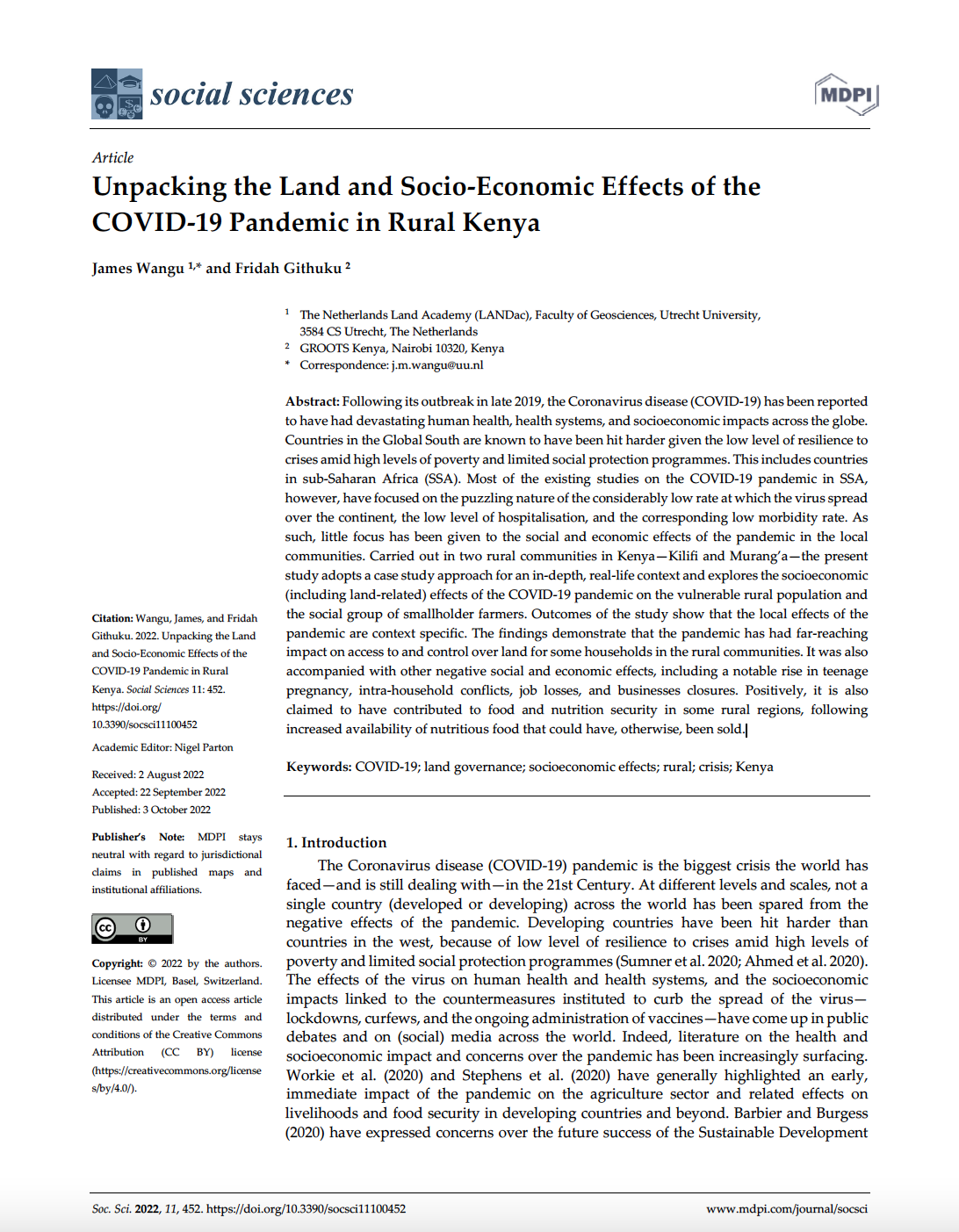Location
MDPI AG, a publisher of open-access scientific journals, was spun off from the Molecular Diversity Preservation International organization. It was formally registered by Shu-Kun Lin and Dietrich Rordorf in May 2010 in Basel, Switzerland, and maintains editorial offices in China, Spain and Serbia. MDPI relies primarily on article processing charges to cover the costs of editorial quality control and production of articles. Over 280 universities and institutes have joined the MDPI Institutional Open Access Program; authors from these organizations pay reduced article processing charges. MDPI is a member of the Committee on Publication Ethics, the International Association of Scientific, Technical, and Medical Publishers, and the Open Access Scholarly Publishers Association (OASPA).
Members:
Resources
Displaying 391 - 395 of 1524Scrutinizing Urbanization in Kathmandu Using Google Earth Engine Together with Proximity-Based Scenario Modelling
‘Urbanization’ refers to the expansion of built-up areas caused by several factors. This study focuses on the urbanization process in Kathmandu, the capital of Nepal. Supervised classification was conducted in Google Earth Engine by using Landsat data for years 2001, 2011 and 2021. The random forest classifier with 250 trees was used for classification to generate land-cover map. A land-cover map of 2021 was used as base map in the InVEST tool for scenario modelling.
Impact of Land Tenure Security Perception on Tree Planting Investment in Vietnam
With over 14 million hectares allocated, Vietnam’s forest and forestland allocation has been one of the largest natural resource decentralization programs in the developing world over the last three decades. Given this remarkable achievement, critics are concerned about the low rates of household tree planting investment and question the roles and effects of land institutions on investment.
Conflict Resolution between Multi-Level Government and Farmers in Land Expropriation Based on Institutional Credibility Theory: Empirical Evidence from Shandong Province, China
Land expropriation has always been a hot spot of social conflicts. The land expropriation policy of Merging Villages and Living Together (MVLT) in rural areas has intensified conflicts due to insufficient financial compensation and “demolishing old houses before building new ones”.
Rural Agriculture and Poverty Trap: Can Climate-Smart Innovations Provide Breakeven Solutions to Smallholder Farmers?
Agriculture is widely recognized as a solution to food insecurity and poverty, especially in rural areas. However, 75% of the world’s poor live in rural areas, and agriculture is the primary source of their livelihood. One may wonder if the observed correlation between agriculture and poverty also suggests causation. If that is the case, then what such causal relationship might exist? Is agriculture a vehicle for poverty alleviation or a source of poverty trap?
Unpacking the Land and Socio‐Economic Effects of the COVID‐19 Pandemic in Rural Kenya
Following its outbreak in late 2019, the Coronavirus disease (COVID‐19) has been reported to have had devastating human health, health systems, and socioeconomic impacts across the globe.






